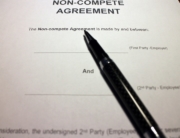Virtually all of the US population was recently subject to stay-at-home orders. As states begin lifting restrictions that allow employees to return to work, staffing firms in particular face a myriad of legal pitfalls and logistical challenges as they recall employees — both their own as well as temporary workers to send on assignments — who have been working remotely or sitting idle during the Covid-19 pandemic, and may now be going back to work in multiple locations.
The nation is currently a patchwork quilt of return-to-work laws, with many states having radically different rules from county to county and even city to city. If your place of business is within a locale that still limits businesses to those providing “essential services,” chances are, your staffing company is not “essential”; however, if you provide temporary workers to an essential business, your company may qualify as “essential services support,” allowing you to be open. You will want to check the state, county and city regulations covering any location where your employees will be working.
Voluntary return. Some employees may express hesitation to return before a vaccine is widely available. Under the Americans with Disabilities Act, such employees may be able to make out a viable claim for a real or perceived disability associated with the media-fueled fear of the virus. It is also important to realize that employees fearful of infection who return from furlough may become immediately eligible for paid leaves (paid by you) under the federal Families First Coronavirus Response Act and other similar state statutes.
As a result of the foregoing, and to reduce the crush of logistical issues associated with everyone returning at once, consider extending the return to work offer to furloughed employees initially on a voluntary basis. If employees want to remain on an unpaid leave of absence, they can. Give them a date by which they need to respond to your return to work letter, or risk losing the assignment to others, but do not threaten to terminate them completely unless you must have them return now.
Response plan. Some states, such as California, are mandating that employers prepare a “Covid-19 Response Plan” in order to bring employees back to work. This is particularly true with staffing firms, because not only do you need to reassure your company staff that returning to work is safe, you also need to reassure your temporary workers that you will coordinate with customers to ensure that they are taking appropriate health and safety measures at their locations. As with many other employment law issues, using the California requirement as a template is likely a good idea for those with employees in other states. (For an overview of a California Covid-19 Response Plan, click here.)
Health directive compliance. You will want to regularly monitor directives from the Centers for Disease Control, the Occupational Safety and Health Administration (OSHA), and any local health officer directives for any locales where your temporary workers will be performing services. Communicating to employees that you are complying with all directives has the dual benefit of reassuring your workers, as well as ensuring you are complying with any rules in effect at your customers’ worksites – because at the end of the day, they are your employees, and any violation will impact your business as well as your customers.
Symptoms check. The Equal Employment Opportunity Commission (EEOC) states that employers (i.e. you or your customers) may ask all employees (do not single out certain employees or groups) who will be physically entering the workplace if they have Covid-19, symptoms associated with Covid-19, or ask if they have been tested for Covid-19 or have been in close proximity to someone recently diagnosed. Symptoms associated with Covid-19 include cough, sore throat, fever, chills, shortness of breath, new loss of smell or taste, as well as gastrointestinal problems, such as nausea, diarrhea, and vomiting. Employers may not ask employees who are teleworking these questions.
Employees with symptoms should be sent home to consult with their own healthcare provider. Employees can and should be denied entry into the workplace if they refuse to answer screening questions and/or submit to temperature screening. All medical information obtained from an employee and documented (including whether the employee has Covid-19) must be maintained in a confidential medical file for the employee (HIPAA rules apply).
PPE. If you, your customer or applicable law requires employees to wear personal protective equipment in the workplace (e.g. masks, gloves), you may have to pay for the equipment. OSHA regulations require that the employees be trained on how to properly use the equipment. If an employee reports that he/she has a disability that prevents the employee from wearing the required protective equipment, you may have a duty to reasonably accommodate the employee by providing different protective equipment or allowing an exception.
Staffing firms are already well-practiced in managing multiple sets of procedures and rules all at once. If you think of returning to work in the Covid-19 era as just another set of rules and procedures from a high maintenance customer with which you need to comply, staffing firms have a significant advantage over other employers.







